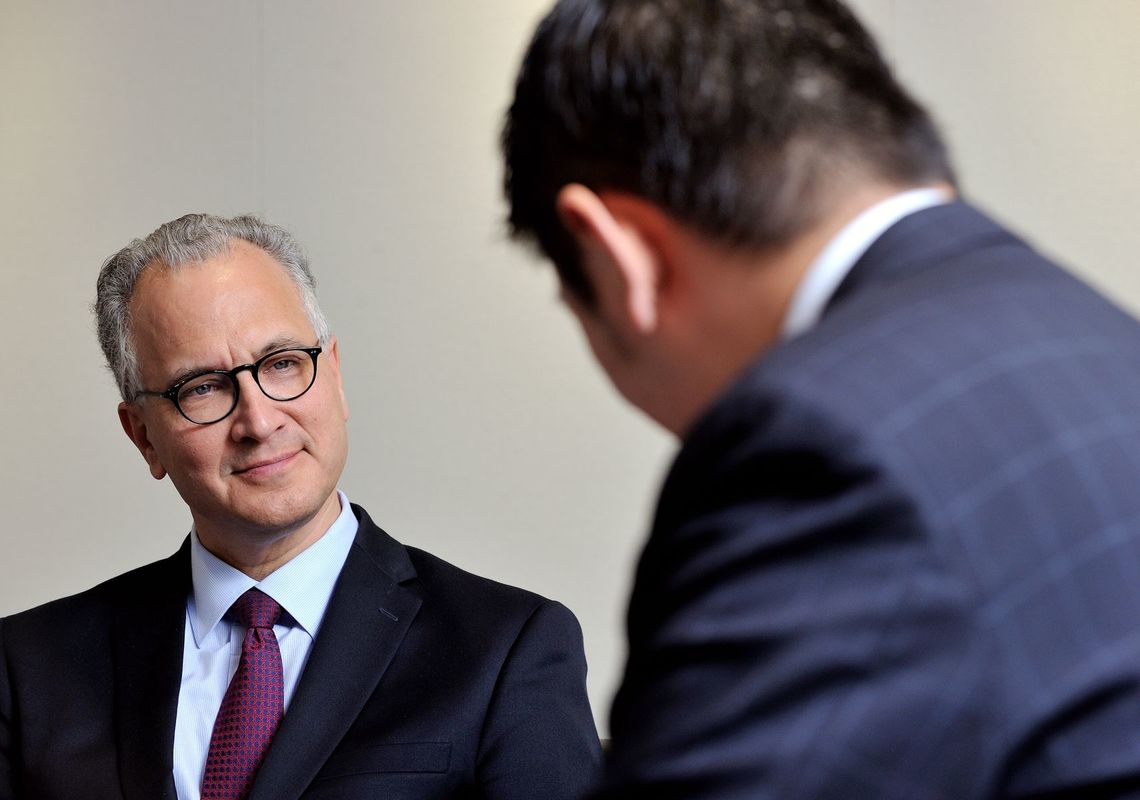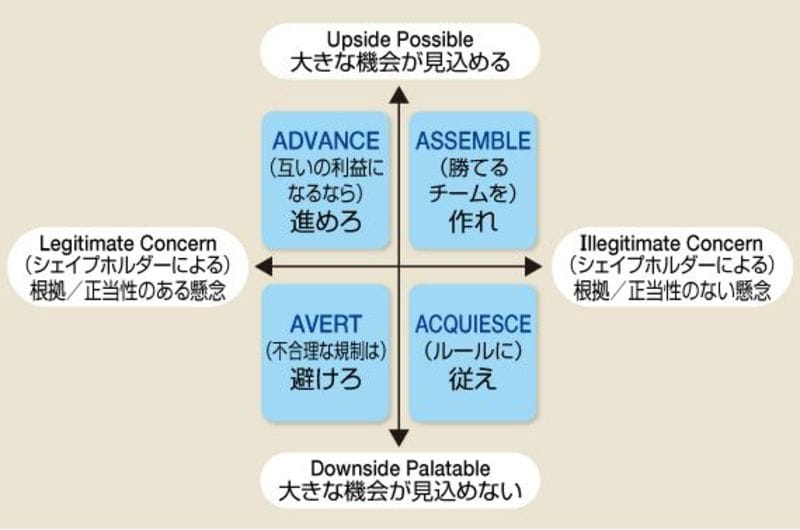
Overseas experience is essential
--In the program you teach at George Washington University, you go overseas with your students. When I interviewed a person from Toyota Motor Corporation, he also said that “we need to nurture talents for government-public relations who could deal with the global markets around the world.”
That’s right. If corporations decide to nurture talents for government-public relations, they should be more active globally.
Of course, the decision processes are different for each country. That’s why my students go to four different countries and spend one week in each country. I provide them with the opportunities to visit embassies and meet with politicians, government liaison personnel, the media, NGO, and activists in each country.
The program started in 2013, and 2014 is essentially its first year. In2013, we went to Istanbul in Turkey, Brussels in Belgium, Hong Kong, and Sao Paulo in Brazil. In 2014 we added London and Seoul, and starting from 2015 we will also add Beijing, Seoul, Tokyo, and other East Asian countries to the list.
--It seems like the students have a pretty hard time.
To those who are not familiar, there are also public affairs firms. This type of business is rare in Japan, and to put it simply, these are firms that provide consultation to corporations with regards to forming relationships with the government. In fact, such firms exist all over the world.
If I have to give a typical example, Fleishman Hillard is a well-established and major player. Other PR firms such as Ogilvy, Edelman, and APCO also provide services related to politics globally. We ask these major firms about what kinds of things they do in different countries.
--Although Japan’s Democratic Party had succeeded in the regime change in 2009, it is also well known that the party had hired Fleishman Hillard to run its election campaign from 2003 to 2005. If companies want to move general public opinion, what should they look out for?
We came up with the “Seven A approach.” It is important for companies to pay attention to when it involves not only the government but also the general public’s opinion. There are seven keywords in total, and all of them start with A.
There are three major ones to begin with: Authentic, Anticipate, and Assessment.
The first is “Authentic”. When you convey a message, the audience should not think “you’re probably just saying that for your own benefit.” In addition, you cannot just say something and leave it at that, you have to act on your words.
--So for example, even though pharmaceutical companies do what they do to ultimately earn profits, they have to say that they are doing it not just for their own interests, but “to eradicate diseases” and for a good cause that will help the society.
The second is “Anticipate”. When you convey a message, you have to think about how the people who make up the society will interpret it, and think about their reaction in advance.
How do you make assessment?
--I see. Recently in Japan, sexual harassment heckling in the Diet became a big issue. In this case, the assemblymen did not think about how their“jeering” would be received.
That could be the case. The third is “Assessment”. Assessment is divided into four quadrants by the vertical and horizontal axes.

“Shapeholders”, the “SEveA” approach and “Win Win Shapeholders Desicion Matrix” (c)2013 Mark Kennedy
The horizontal axis represents the legitimacy of the concern (Legitimate Concern/ Illegitimate Concern) for the shapeholder (not necessarily the people directly involved with the decision-making, but also the people who help shape the decision. For example, the media). The vertical axis represents the opportunity for the business (Upside Possible/Downside Palatable).
The strategy that should be applied are (clockwise from top right): Assemble (create a winning team), Acquiesce (follow the rules), Avert (avoid irrational regulations), and Advance (progress if mutually beneficial).
Take the environmentally friendly Toyota Prius. There is a legitimate concern for the shapeholder to better the environment. The state of California has strict exhaust emission regulation, so if the Prius is sold there, it would not only solve a legitimate concern of the shapeholder (in this case the state of California), it would also defeat its rivals in the business.
On the other hand, if the state is not concerned about its exhaust emission regulation, whether the product is environmentally friendly or not somehow becomes a non-issue. Therefore, it is important to employ a strategy based on one’s positions in the four quadrants.
If a company’s products or claims can neither address the shapeholder’s concerns nor have business opportunities, it should choose the bottom right strategy (Acquiesce). For example, the Swiss think that Swiss milk has the bestquality, regardless of whether it was right or not. Therefore, there might be no legitimate concern regarding the quality of their milk.
However, no matter how high the quality is for milk produced in Australia, ice cream that uses Australian milk will not sell among the Swiss. In other words, there is no business opportunity. In such cases, it is best to “follow the rules” and acquiesce by selling ice cream that uses Swiss milk.
If there is no legitimate concern by the shapeholder, but you expect a business opportunity, proceed by co-operating with other players in the market.
--So these seven keywords are collectively termed as the “Seven A Approach." It seems like a useful approach even for things other than policies.
Our program involves visiting various countries. For Turkey, we picked the occurrence of the Arab Spring as a case study. At that time, the Turkish government used tear gas to quell the demonstration.
The Japanese don't speak straightforward
--So you let your students contemplate on real case studies. From your point of view, how do you see the relationship between the Japanese government and corporations, and the US government?
The Japanese government and corporations do not communicate well with the American government and public. They have not been able to successfully convey their message, and there are two reasons for that.
The first is language. Japanese people do not normally speak in a straightforward manner. For example, what they say and what they really mean are different. When I was working at Accenture, I was pleased when a Japanese client said to me “let’s meet again later.” However, a subordinate who happens to be Japanese told me “it was only polite greeting.” Speaking in a straightforward manner is not part of the culture.
For the Chinese and Korean, if they say “let’s have another meeting,” it is perfectly fine to take it as it is. However, since Japanese is not a language in which you can directly convey a message, it becomes a disadvantage for the Japanese in politics, especially in places like Washington.
For Americans, differentiating what you say and your real intention feels like lying. The concept of separating your real opinion and what you say does not exist in the US, and you have to speak in a more direct manner.
--I see. What is the other reason?
When the Japanese try to move the government, they do so through the politicians. However, this method does not make sense for government in other countries. For example, there was one time when Sony tried to prevent people from using its contents without permission on the Internet, by requesting the US government to crack down on such activities.
Meanwhile in the world of the Internet, companies like Google and Facebook are using our browsing history and collecting big data without our knowledge. They analyze our purchase history and Internet behavior, create algorithms that can come up with effective advertisements and sell them. In other words, Google and Facebook prefer not to be subjected to any kind of constraints from the government whenever possible.
So the strategy they took was to start campaigns that asks the general public: “is it ok for the government to control our Internet freedom?”
--There are nuanced differences in the way that Americans and Japanese perceive the government in the first place. Even though Americans do not completely distrust the government, after the Snowden incident, some people felt that “the government’s actions are dubious,” and they empathize with the distaste toward the government.
Technology companies such as Google and Facebook issued a message that said:“Would you allow such a government to interfere with our Internet freedom?” This message resonated effectively with the American society. In the end, Google and Facebook gained support, and not Sony.
Perhaps Sony had unwittingly taken action, thinking that by appealing to the Congress they would be able to move public opinion. However, telling the government what to do and to do it a certain way is completely meaningless.
The reason is that the Congress only listens to the voters. They want to be re-elected, so even if they were to listen to the appeals of those who have no voting rights, they would not be able to do anything.
When Japanese think about lobbying, they imagine lobbyists attempting to influence politicians in Washington. That does not make sense. If they want to change the minds of the politicians, they have to work on the voters at the grassroots level in each state where the politicians are. Now, Japanese corporations have been hiring large numbers of Americans in various states, and the politicians will definitely be inclined to listen to what they have to say.
The goverments alone can't solve TPP issues
--Now that you’ve mentioned it, it makes a lot of sense. It is a very important issue for Japan.
For example, there were many complex issues regarding the TPP that could not be solved simply between the governments alone. When it involves public opinion and politics, it is only natural that things cannot be decided even if fellow politicians are able to discuss the issues. This is because each of them has their voters to consider.
It is important to decide whom the stakeholders and shapeholders are, and plan on how to communicate with them. This is not only limited to politicians, it is something that government officials, businessmen, people who work at NGOs, and everyone should know. This is what I teach at George Washington University.
--You were in an environment where you were aware of politics from a young age. What kind of university is George Washington University?
George Washington University is named after the first president George Washington. The university was built because the president himself had a strong sentiment of nurturing leaders in Washington. The university is also located in the heart of Washington, less than four blocks away from the White House. Sandwiched between them is the IMF and other important buildings. It is considered to be the most important location in Washington.
There are 25 thousand students, making it the biggest university in Washington. Most of the students are undergraduates, and there are only 500 graduate students at the Graduate School of Political Management. Half of them take online courses, while the other half learn in the classroom.
I teach three programs at the Graduate School of Political Management. The first is a program on how to nurture the election staff, and students will learn about how to appeal to the voters regarding policies.
There is an extremely large number of policy staff in the US Senate and House of Representatives, and the second is a program on how to nurture the congressional staff.
The third is a program to nurture PR talents. This is not only limited to the political world, but is also useful for PR in big corporations. It is the same program that I had taught at the business school in Johns Hopkins University. Even though it hasn’t been long since the start of the program, it had been producing a large number of talents.
--All programs are not really available at Japanese Universities.
A characteristic of this school is its focus on “how”. In other words, the political beliefs of individuals do not matter. We only teach students “how to effectively make a case for their policy,” but we do not teach them about“what is right”.
For example, students are free to discuss without pressure from the school, and discussions include topics such as “Are big governments better, or are small governments better?” and “Are higher taxes better, or lower taxes better?” The school only teaches skills and tactics. There is no partisanship in the school. There are conservatives and there are liberals, and the school provides both sides with a place to openly pit their ideas against one another.
Because of this, the faculty was made up of people who come from different career backgrounds and belong to different parties. Even though I’m a Republican, there are also many teachers who are not. Students have the opportunity to be taught by Republican supporters and by Democratic supporters.
-- So there is no partisanship in the university itself. Currently, the US Congress is extremely tinged with partisanship; simply put, they cannot have a proper discussion at all. Since there is no room for each party to compromise, Congress was forced to stop completely.
Although the faculty at the Graduate School of Political Management is made up of people who have doctorates from Harvard, MIT, and other various places, there is only one condition with regards to being employed; they had to have experience in being involved with election campaigns or politics.
The university has two roles: one is to serve as a place to learn about theories, and the other is to serve as a place to gain practical experience. Universities tend to run in the direction of theories, but the purpose of this program is to be practical, and we focus on how they can make a case for their own policies and ideas and make them happen in real-life politics or elections.
--I see. I might also have the tendency to run away from theories.
In the past three years, I had been to 40 countries. My thought from the experience at the time was that the world is really globalizing.
On the other hand, in a country like the US, there is a tendency for a country-centric education. However, the decision process is different for each country, and I want to nurture people who can understand that.
Because of this, I am putting a lot of effort into education that focuses on Latin America. All the classes are conducted in Spanish. Students learn about what kind of PR activities, such as lobbying and PR, have to be carried out in order for companies to be able to talk to the government in each Latin American country.
One more thing that I am focusing on is for the students to learn how to co-operate with the general public and mold public opinion. Up until now, the government and officials had the authority to decide on things. However now, the media, NGO, and grassroots movement often determine things. There are many cases where people form partnerships and appeal to policies.
--The same situation is happening in Japan.
I teach classes where students learn how to elaborate on the messages they want to convey, how they can collaborate with various players, and how to increase the number of friends in their circles.
For example, if you run a company, how would you collaborate with NGOs, the media, and the civic movement community? Or, I can also teach you how to start your own grassroots movement.
People or businesses that have a stake in entities are called stakeholders, but now I want to add the word shapeholders.
Shape means “form.” Shapeholders refers to the people who are not necessarily directly involved with the decision-making, but help form the decision. A typical example of a shapeholder is the media. People cannot help but be affected by statements made in the media.
Other examples of shapeholders are the Greenpeace and activists of the anti-whaling movement. Even though they are not necessarily directly involved with the decision-making, they have influence externally, and are changing people’s impression on things. It is also necessary to associate with these players.




